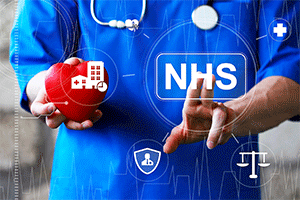The new national ambition for a Single Virtual Contact Centre, supporting the new NHSE policy, offers significant benefits for patients and commissioners. With this change, comes considerations to ensure the opportunities are maximised for Commissioners and Providers
111 is the 24-hour non-emergency medical NHS helpline operating in England, Scotland and Wales, allowing patients to access health services when they have an urgent need.
Currently, 111 calls are directed to the local contact centre, which is operated by different Providers. Different local Providers mean that wait times can vary considerably, depending on demand and capacity. In October 2021, 49.6% of calls were answered within 60 seconds in London in comparison to 15.1% in the North East and Yorkshire1. The graph below shows the call abandonment rate across England in the same month.
To ensure IUC services are aligned to and meet the requirements of today’s commissioning landscape, in October 2021 the draft Integrated Urgent Care Commissioning Framework was published. This new framework aims to ensure the future sustainability of IUC; maximising opportunities for economies of scale, including achieving greater efficiency, effectiveness, productivity and resilience.
To underpin this critical strategic move, a new gold-standard 111 call-handling platform is being mobilised across England to provide a Single Virtual Contact Centre (SVCC), enabling ‘next available agent’ call routing at scale. This new model of delivery for 111 aims to increase national call-handling performance and reduce the significant local variations in call answering time.
The introduction of the SVCC will bring significant improvements to the IUC landscape in England, and with that comes change for both Commissioners and Providers.
Read more about this on their website.

